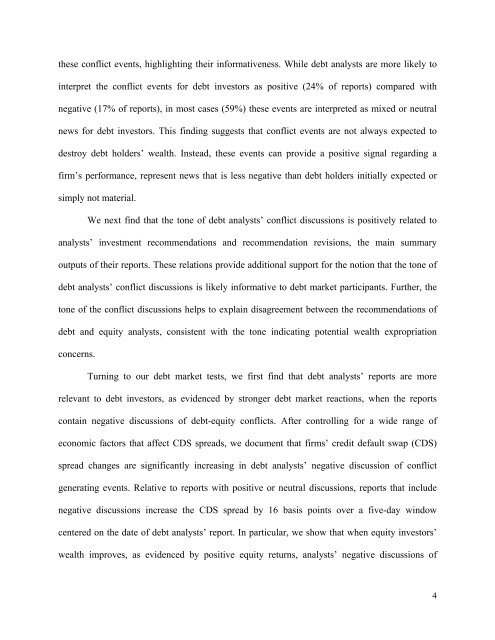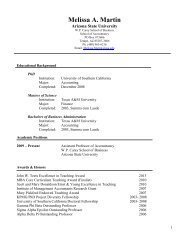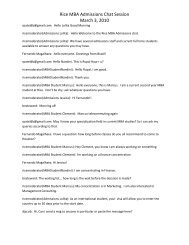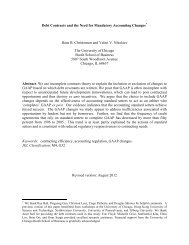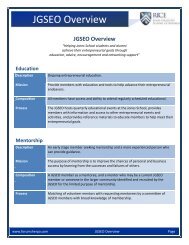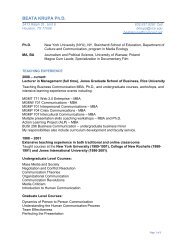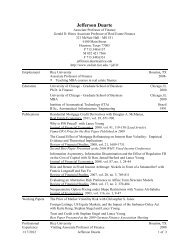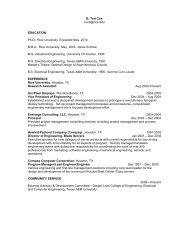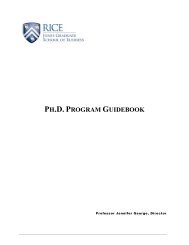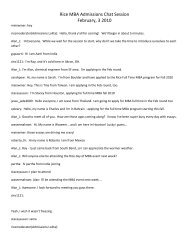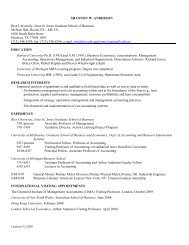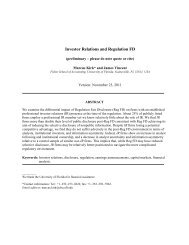Debt Analysts' Views of Debt-Equity Conflicts of Interest
Debt Analysts' Views of Debt-Equity Conflicts of Interest
Debt Analysts' Views of Debt-Equity Conflicts of Interest
Create successful ePaper yourself
Turn your PDF publications into a flip-book with our unique Google optimized e-Paper software.
these conflict events, highlighting their informativeness. While debt analysts are more likely to<br />
interpret the conflict events for debt investors as positive (24% <strong>of</strong> reports) compared with<br />
negative (17% <strong>of</strong> reports), in most cases (59%) these events are interpreted as mixed or neutral<br />
news for debt investors. This finding suggests that conflict events are not always expected to<br />
destroy debt holders’ wealth. Instead, these events can provide a positive signal regarding a<br />
firm’s performance, represent news that is less negative than debt holders initially expected or<br />
simply not material.<br />
We next find that the tone <strong>of</strong> debt analysts’ conflict discussions is positively related to<br />
analysts’ investment recommendations and recommendation revisions, the main summary<br />
outputs <strong>of</strong> their reports. These relations provide additional support for the notion that the tone <strong>of</strong><br />
debt analysts’ conflict discussions is likely informative to debt market participants. Further, the<br />
tone <strong>of</strong> the conflict discussions helps to explain disagreement between the recommendations <strong>of</strong><br />
debt and equity analysts, consistent with the tone indicating potential wealth expropriation<br />
concerns.<br />
Turning to our debt market tests, we first find that debt analysts’ reports are more<br />
relevant to debt investors, as evidenced by stronger debt market reactions, when the reports<br />
contain negative discussions <strong>of</strong> debt-equity conflicts. After controlling for a wide range <strong>of</strong><br />
economic factors that affect CDS spreads, we document that firms’ credit default swap (CDS)<br />
spread changes are significantly increasing in debt analysts’ negative discussion <strong>of</strong> conflict<br />
generating events. Relative to reports with positive or neutral discussions, reports that include<br />
negative discussions increase the CDS spread by 16 basis points over a five-day window<br />
centered on the date <strong>of</strong> debt analysts’ report. In particular, we show that when equity investors’<br />
wealth improves, as evidenced by positive equity returns, analysts’ negative discussions <strong>of</strong><br />
4


